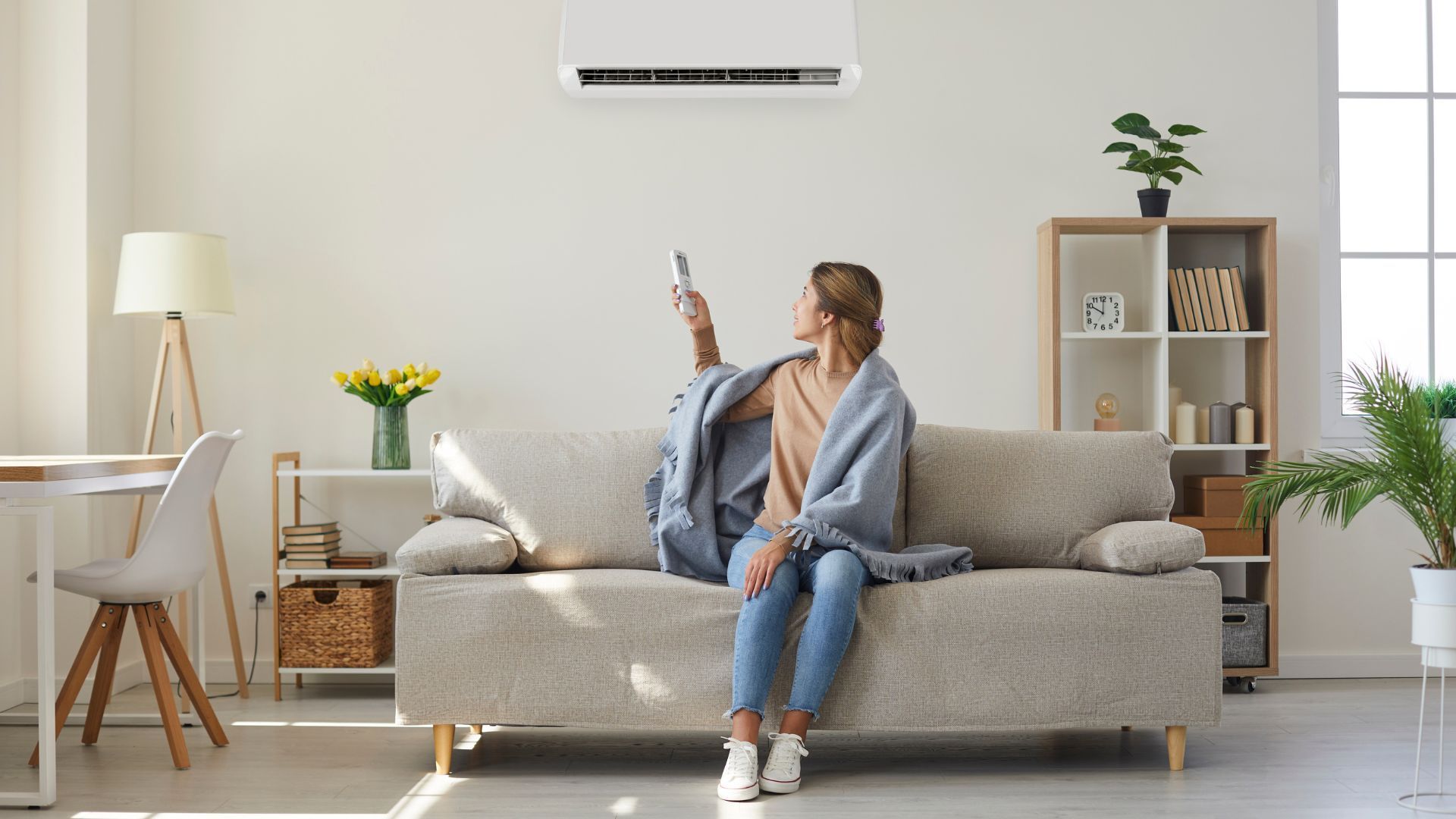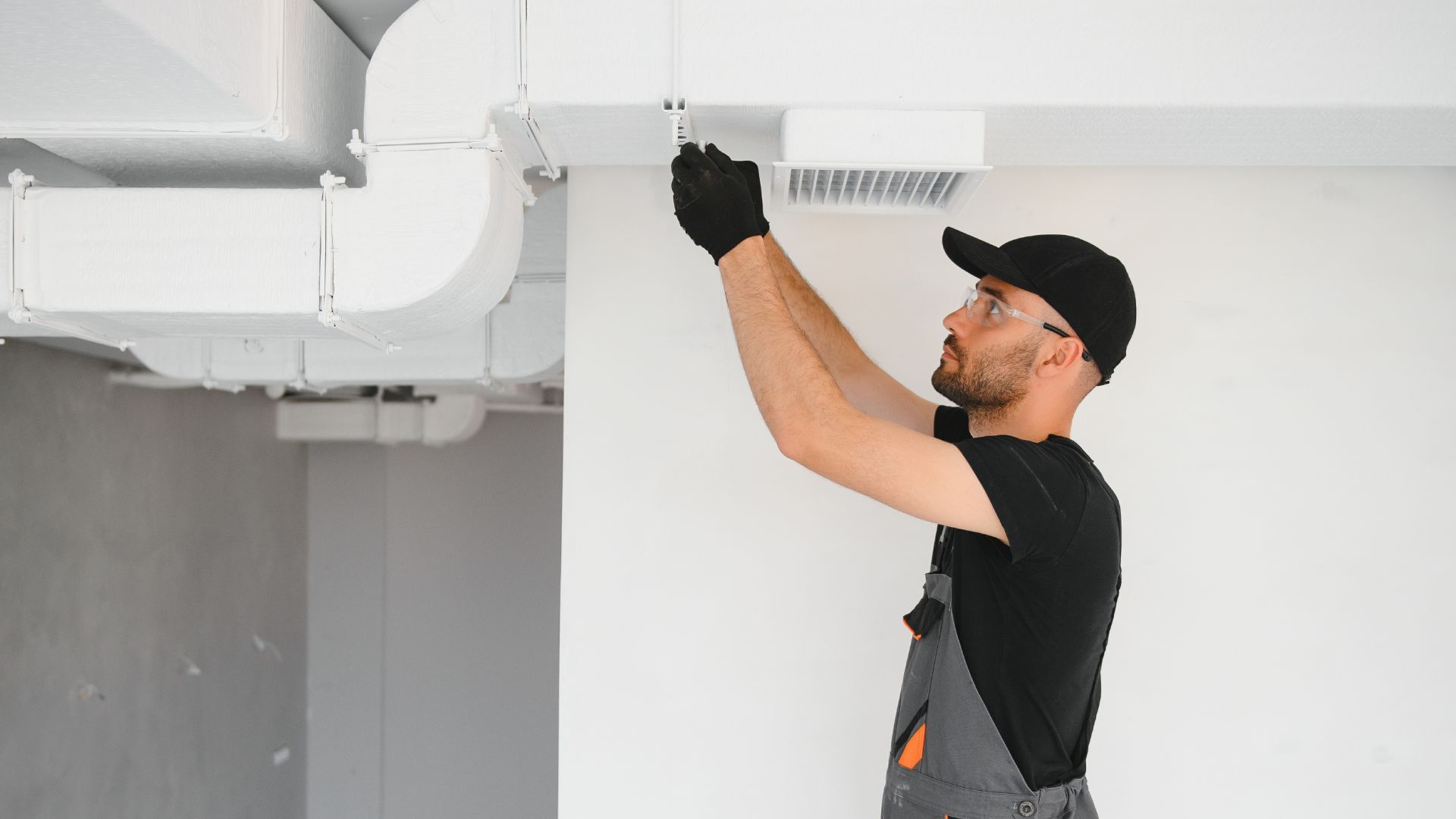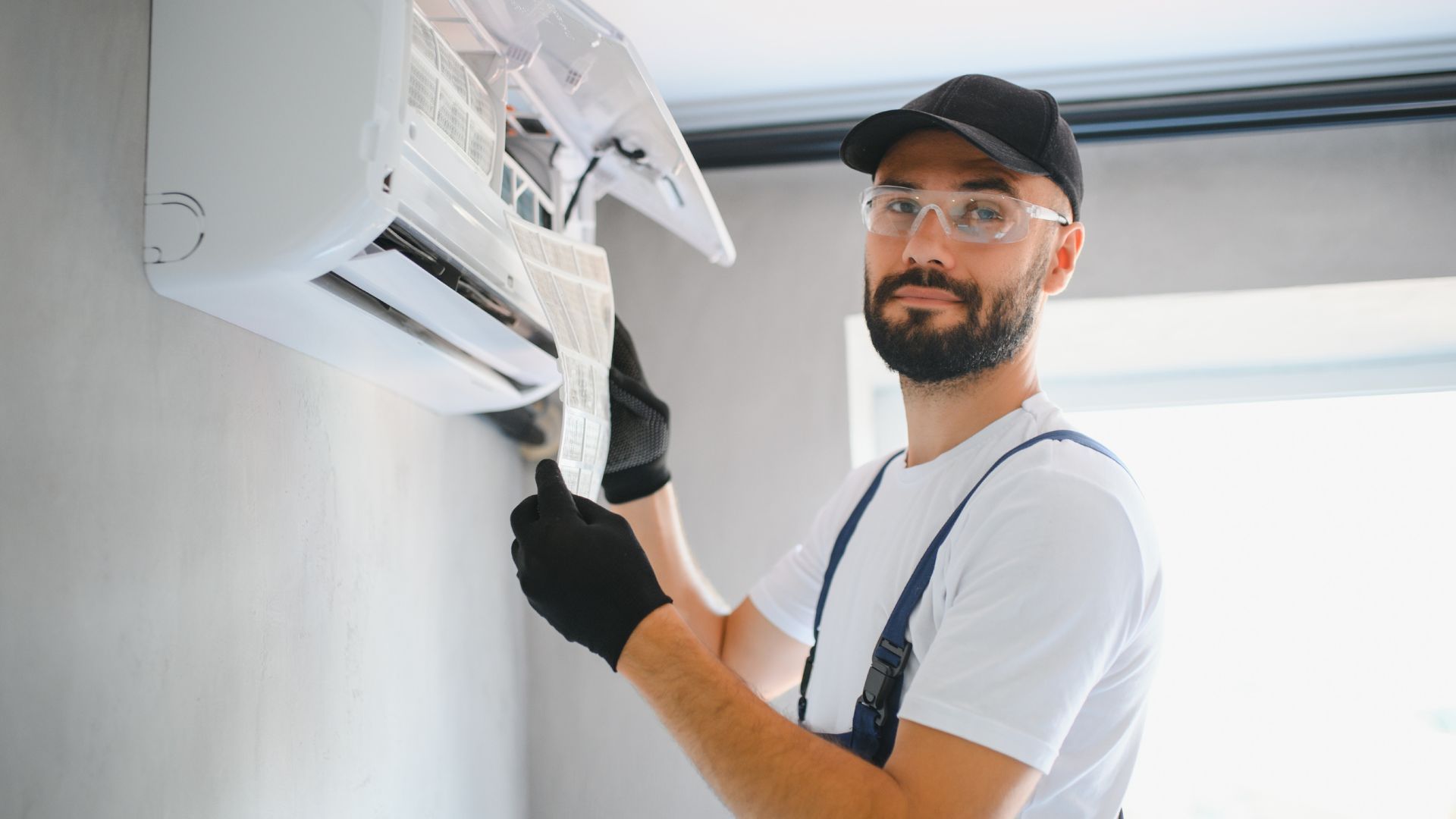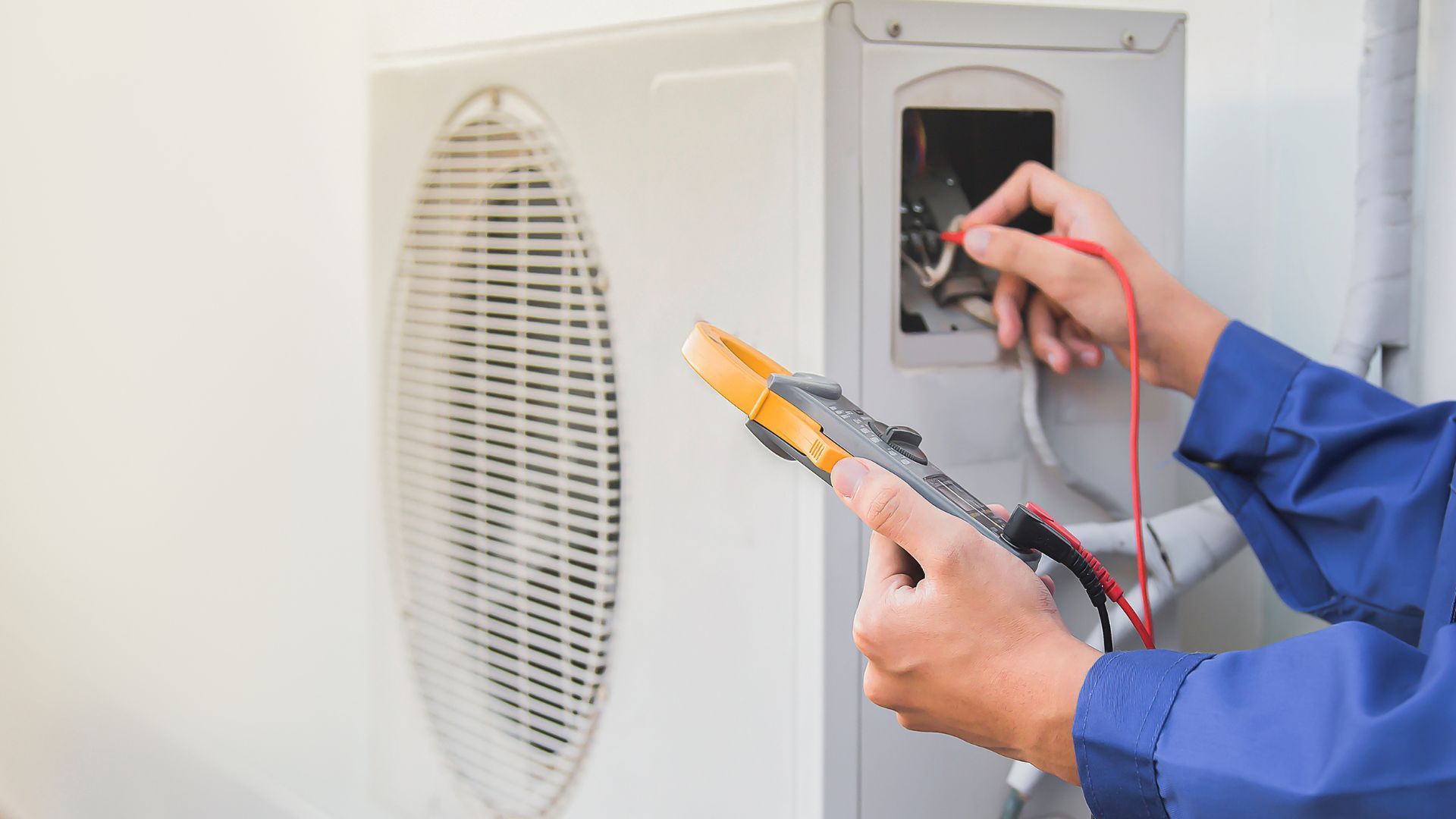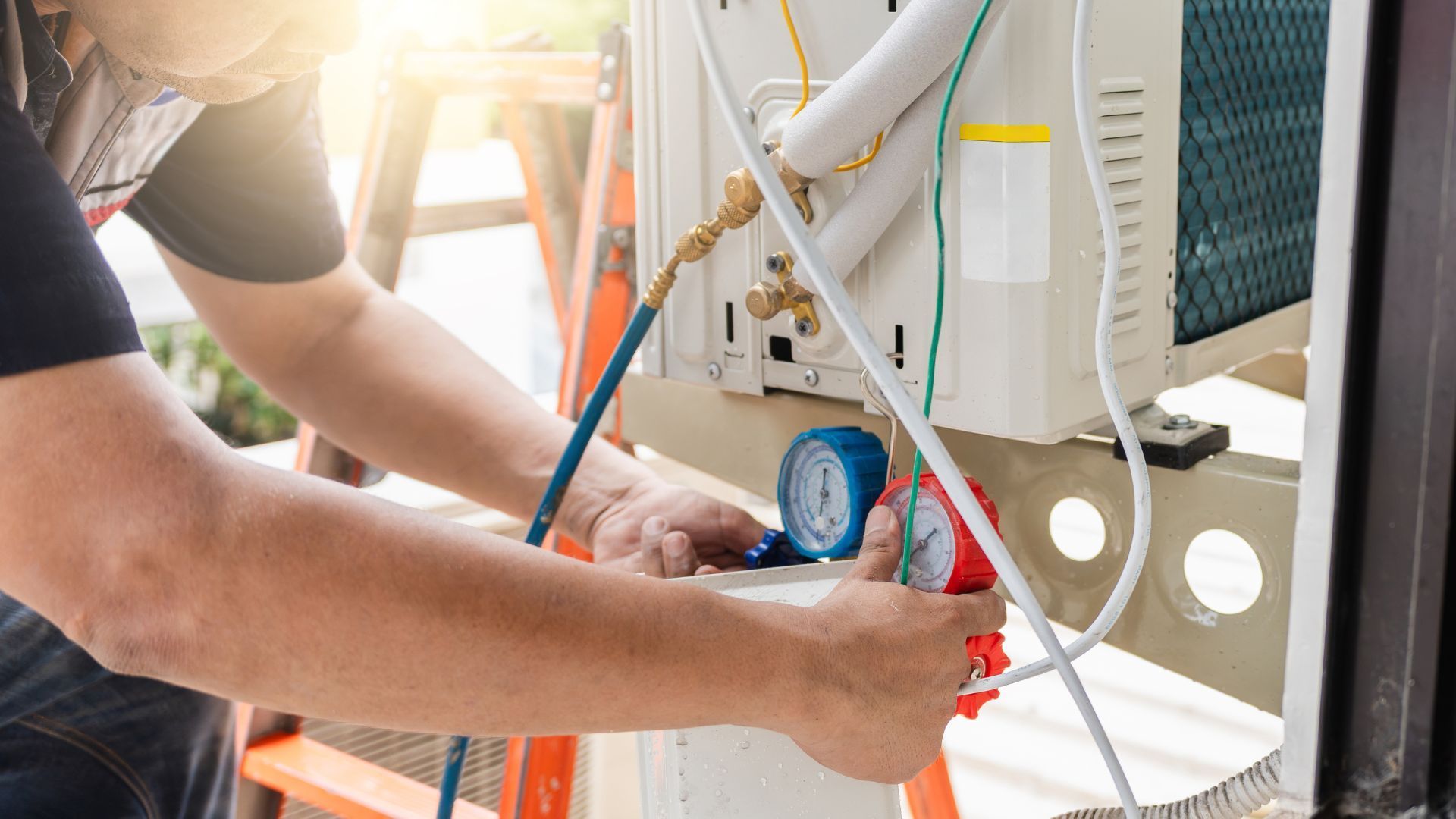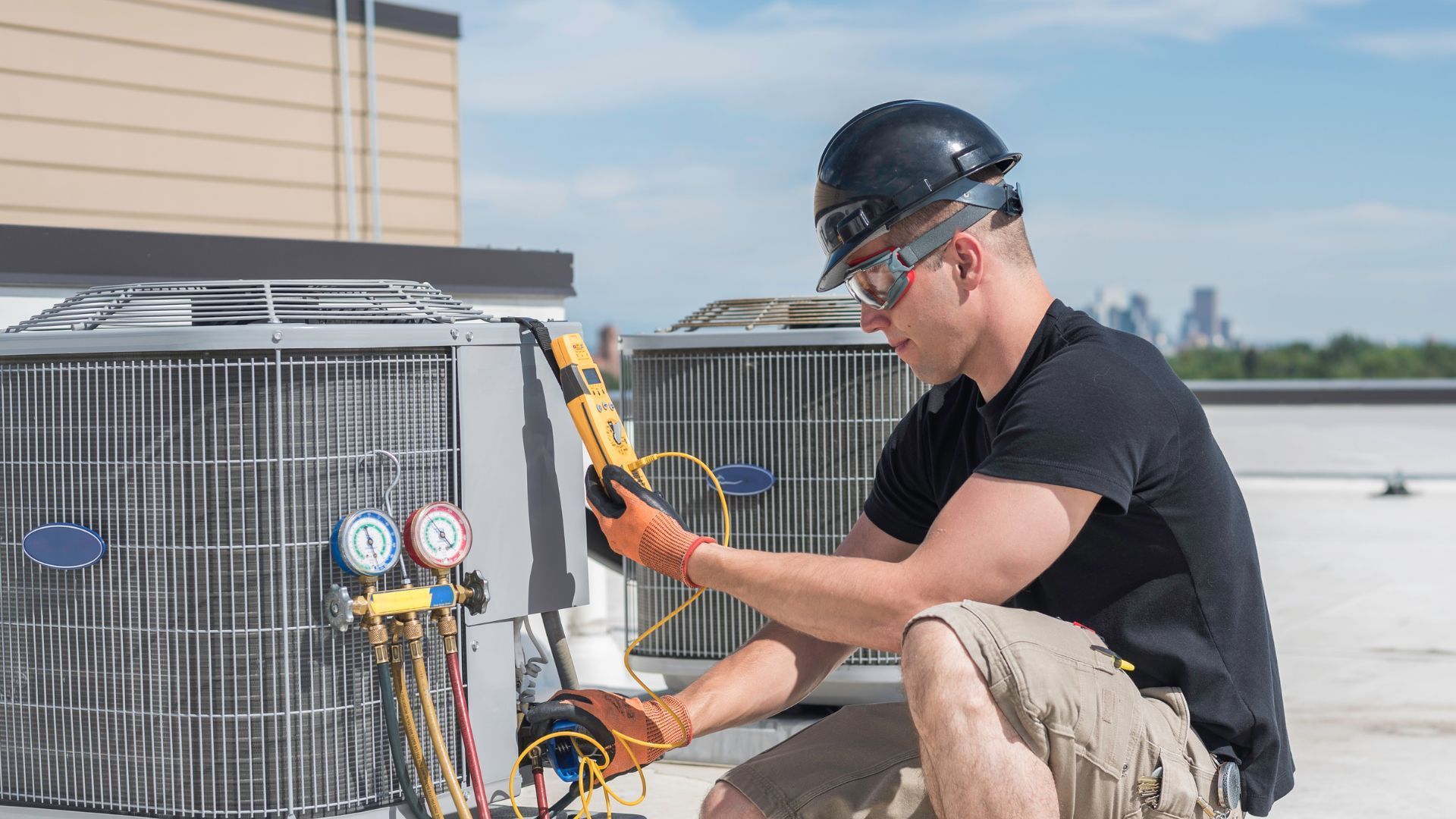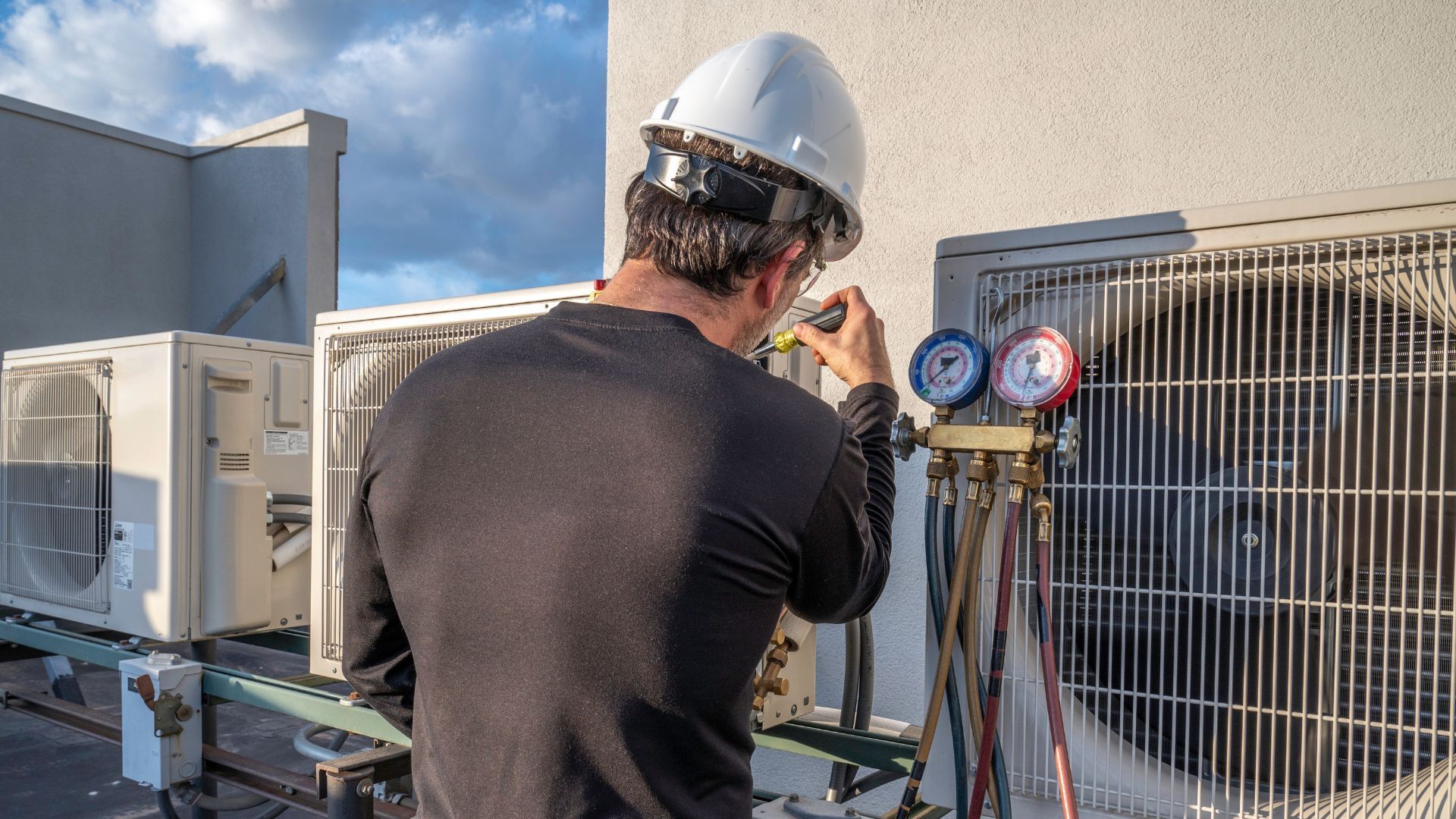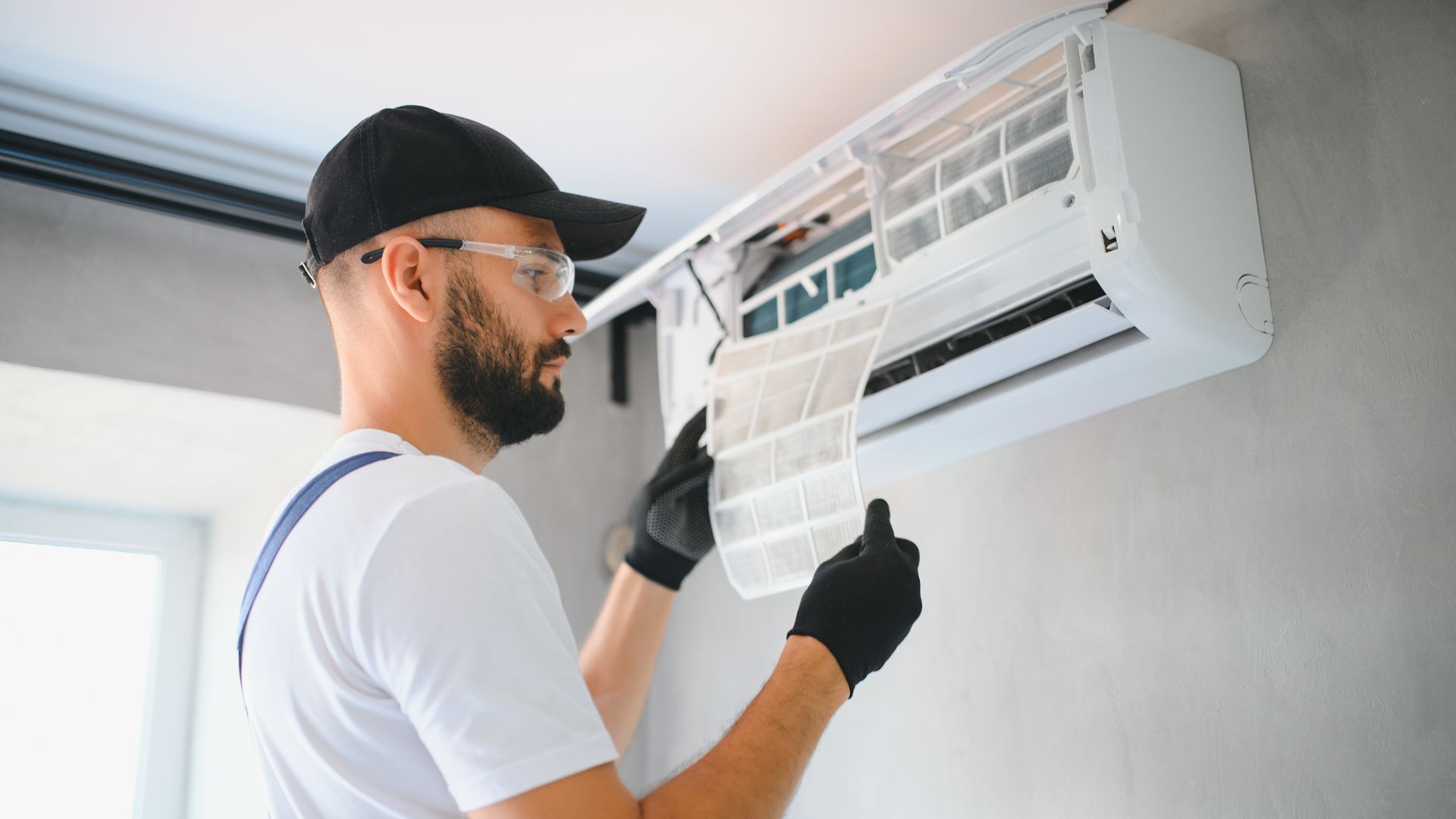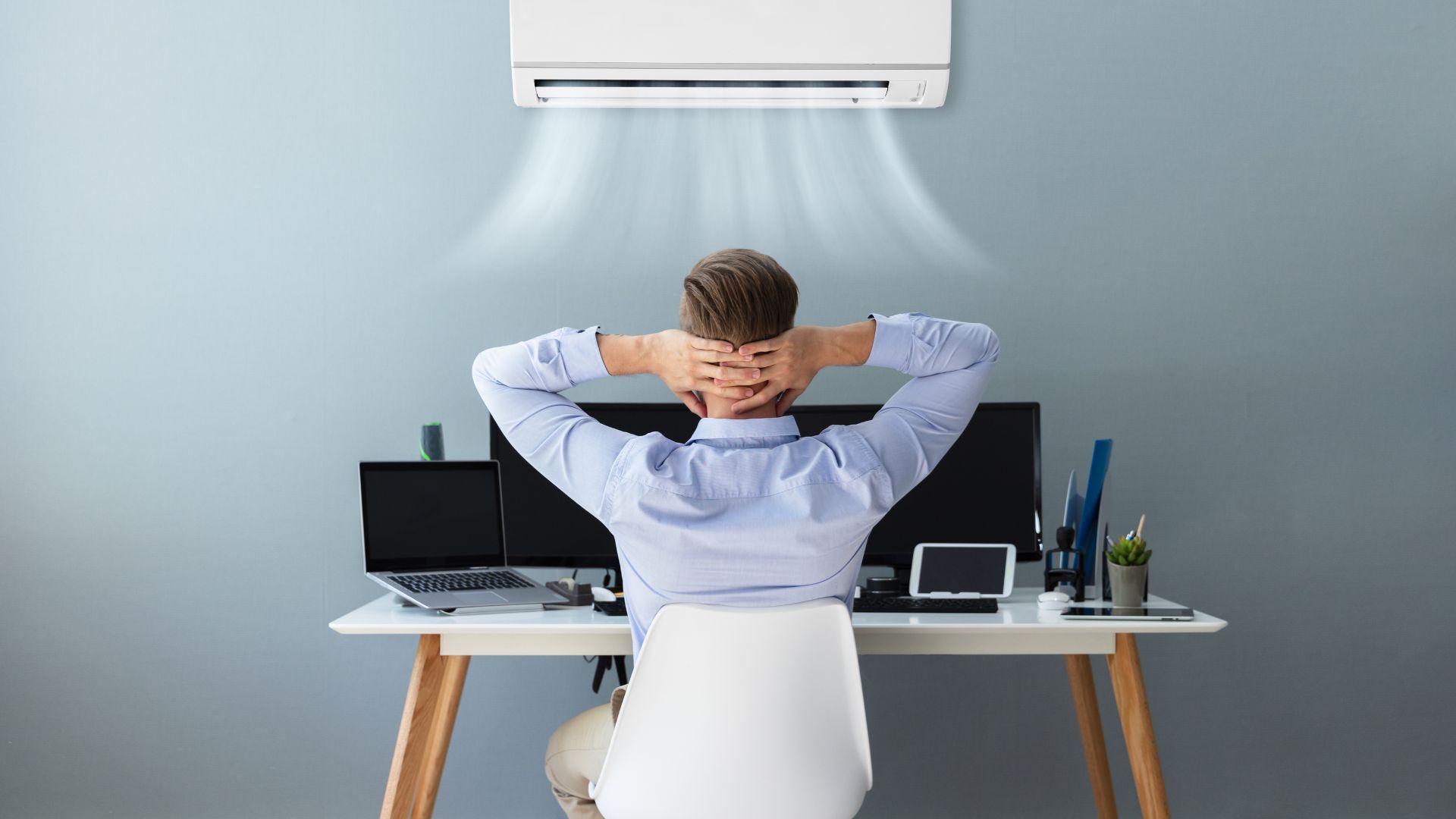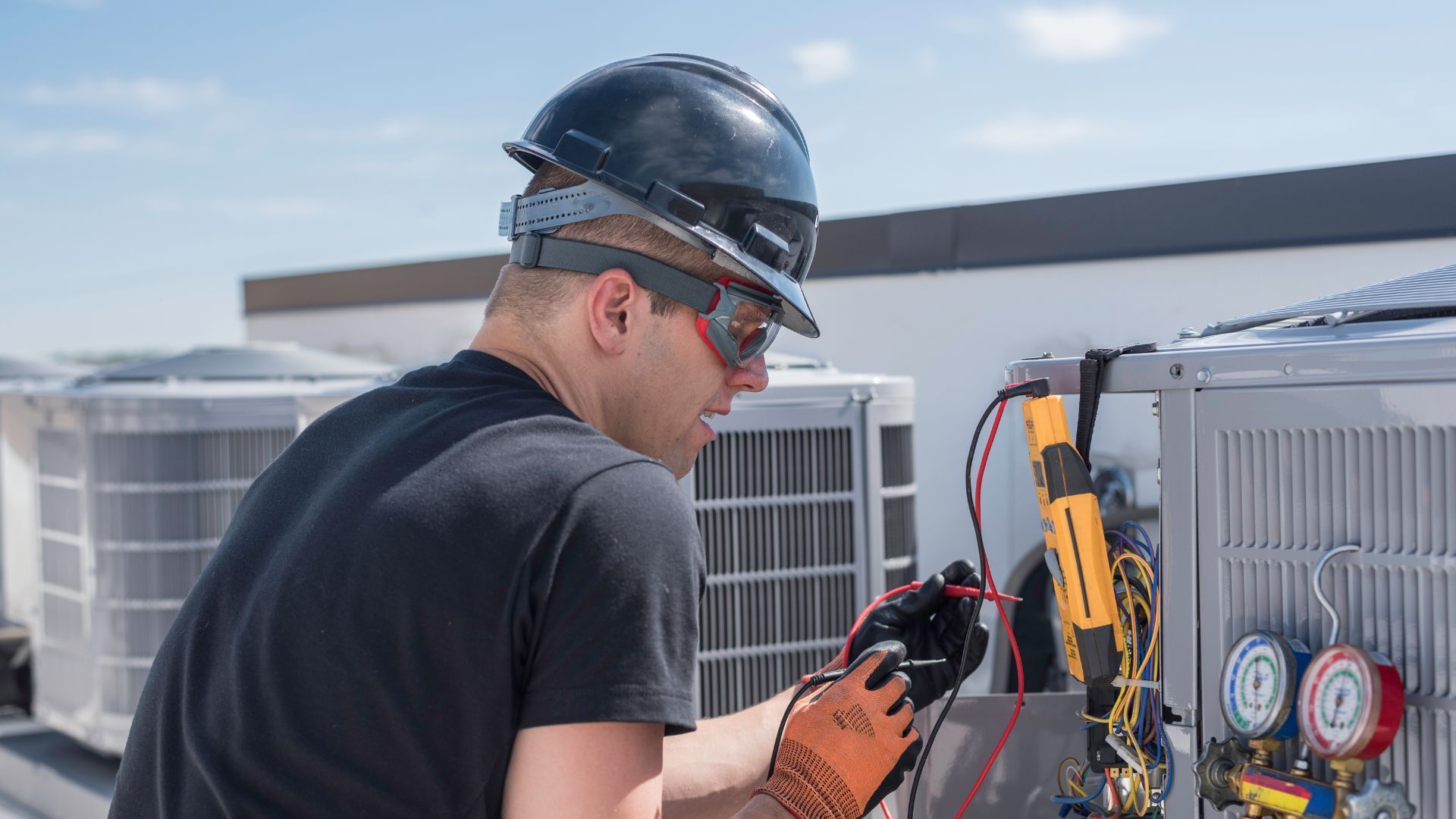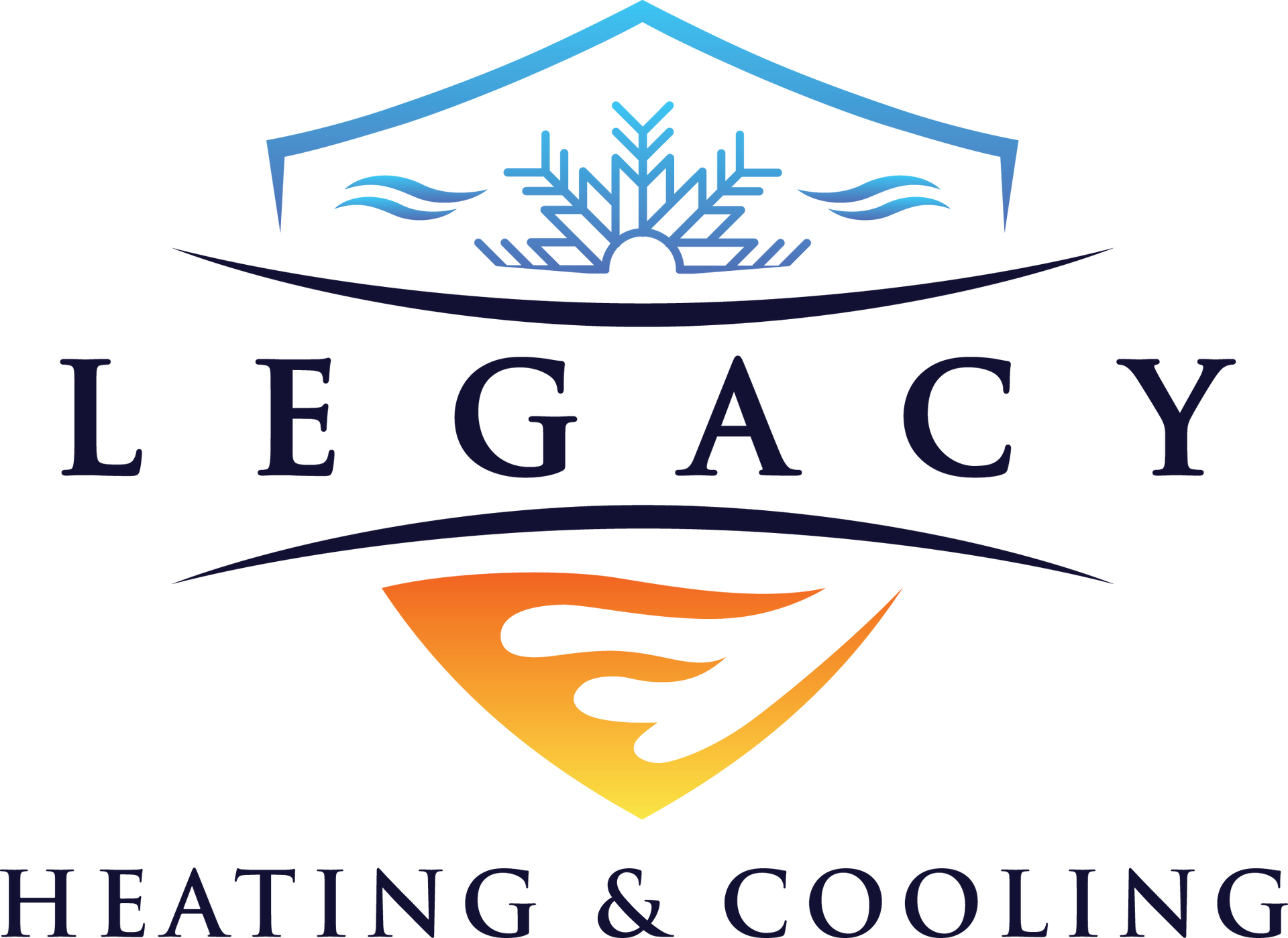Maximize Energy Savings With Commercial HVAC Solutions in Rhode Island
The constantly evolving landscape of commercial HVAC technology presents significant opportunities for businesses throughout Rhode Island to reduce energy costs, enhance system reliability, and maintain superior indoor air quality. With rising energy prices and stringent environmental regulations, companies are increasingly prioritizing high-efficiency HVAC systems that not only minimize operating expenses but also contribute to overall sustainability goals. Facility managers often consult HVAC services in Rhode Island to explore advanced systems—from variable refrigerant flow (VRF) to geothermal solutions—to select the most appropriate technology for their buildings, ultimately driving long-term cost savings and improved workplace comfort.
Commercial HVAC solutions in Rhode Island must also address varying climate challenges, from humid summers to frigid winters. A modern HVAC system is not simply a cooling or heating mechanism; it is a composite of systems involved with air handling, refrigerant management, smart controls, and even building automation. With precise system design and proactive maintenance, businesses can enjoy consistent performance even under heavy load or during emergency service situations. This article explores various high-efficiency HVAC systems and technologies tailored for Rhode Island businesses, delving into their features, benefits, and how they can be effectively deployed to maximize energy savings over time.
Transitioning into an in-depth examination of these systems, the following sections provide a detailed analysis of modern HVAC technologies and maintenance strategies essential for achieving energy efficiency, reliability, and cost savings.
Understanding High-Efficiency Commercial HVAC Systems for Rhode Island Businesses
High-efficiency commercial HVAC systems offer a remarkable blend of cutting-edge technology and robust design, enabling businesses to tackle both energy inefficiency and system unreliability. These systems integrate modern features that improve ventilation and enhance indoor air quality while reducing operational energy consumption. A well-designed HVAC system not only assists in maintaining a comfortable indoor environment but also addresses emergency service needs through reliable components such as advanced refrigerant circuits and durable ductwork.
Comparing Modern Energy-Saving HVAC Technologies Available in Rhode Island
Modern HVAC technologies include innovations such as variable refrigerant flow (VRF) systems, geothermal heat pumps, and energy recovery ventilators, all of which are designed to adapt to fluctuating workload demands. VRF systems, for example, dynamically adjust the refrigerant flow according to the specific cooling and heating demands of different zones within a building. Such systems are proven to be up to 30% more efficient than conventional units because they eliminate the energy losses associated with fixed-speed compressors. In a study by the American Council for an Energy-Efficient Economy (ACEEE, 2021), VRF systems demonstrated significant energy reductions, especially in large commercial buildings.
Assessing Your Building's Specific Needs for Optimal Commercial HVAC Performance
Each commercial building in Rhode Island exhibits unique energy profiles and operational challenges. Therefore, an essential first step in maximizing HVAC efficiency is to conduct a comprehensive assessment of the building’s insulation, window efficiency, and current ventilation performance. This evaluation helps in determining the optimal system design, including the type and capacity of the HVAC unit required. Professional audits often reveal hidden inefficiencies such as duct leakage or inadequate maintenance practices, which, if rectified, can lower operational costs considerably. By understanding the specific thermal load of a building, facility operators can fine-tune the HVAC system for improved responsiveness and longer equipment lifespan.
The Function of Smart Controls in Rhode Island Commercial HVAC Efficiency
Smart controls have revolutionized the way commercial HVAC systems operate. These controls integrate sensors, data analytics, and automated responses to ensure that the HVAC system adjusts in real time to the building’s occupancy levels and ambient conditions. For example, occupancy sensors can detect underutilized areas and modify temperature settings accordingly, leading to a reduction in energy wastage. Systems with building automation features allow remote monitoring and management, ensuring that adjustments can be made on the fly during peak summer conditions or unexpected cold snaps in winter. Research from the U.S. Department of Energy (DOE, 2020) confirms that smart HVAC controls can lead to energy savings of approximately 20% compared to traditional systems
Benefits of Variable Refrigerant Flow Systems for Rhode Island Properties
Variable refrigerant flow (VRF) systems are particularly popular in commercial settings where different zones require tailored temperature controls. The ability to regulate refrigerant flow individually to each zone results in precise climate control, reduced energy losses, and minimal temperature inconsistency. This technology is especially beneficial in buildings with diverse room configurations and fluctuating occupancy, such as hotels, office spaces, and healthcare facilities. The inherent efficiency of VRF systems helps businesses meet stringent energy standards set by Rhode Island and offers significant long-term savings as maintenance and repair costs are lower than those of traditional HVAC systems.
Geothermal Commercial HVAC Solutions and Their Suitability for Rhode Island
Geothermal HVAC technology taps into the earth’s stable underground temperature to offer highly efficient heating and cooling solutions. In Rhode Island, where seasonal temperature extremes can challenge traditional HVAC systems, geothermal solutions provide a reliable and sustainable alternative. These systems reduce the need for conventional heating fuel and lower electricity consumption by as much as 40% compared to standard systems. Furthermore, geothermal systems have a much lower environmental impact, aligning with state and federal regulations aimed at reducing carbon footprints. Although the initial installation cost is higher, incentives such as state rebates and federal tax credits can make geothermal an attractive long-term investment for energy-conscious businesses.
Key Takeaways:
- Modern HVAC technologies like VRF and geothermal systems offer significant energy savings.
- Smart controls allow for real-time adjustments based on occupancy and ambient conditions.
- Proper building assessments ensure the optimal design and deployment of HVAC systems.
Key Advantages of Upgrading to Energy-Efficient Commercial HVAC Solutions in Rhode Island
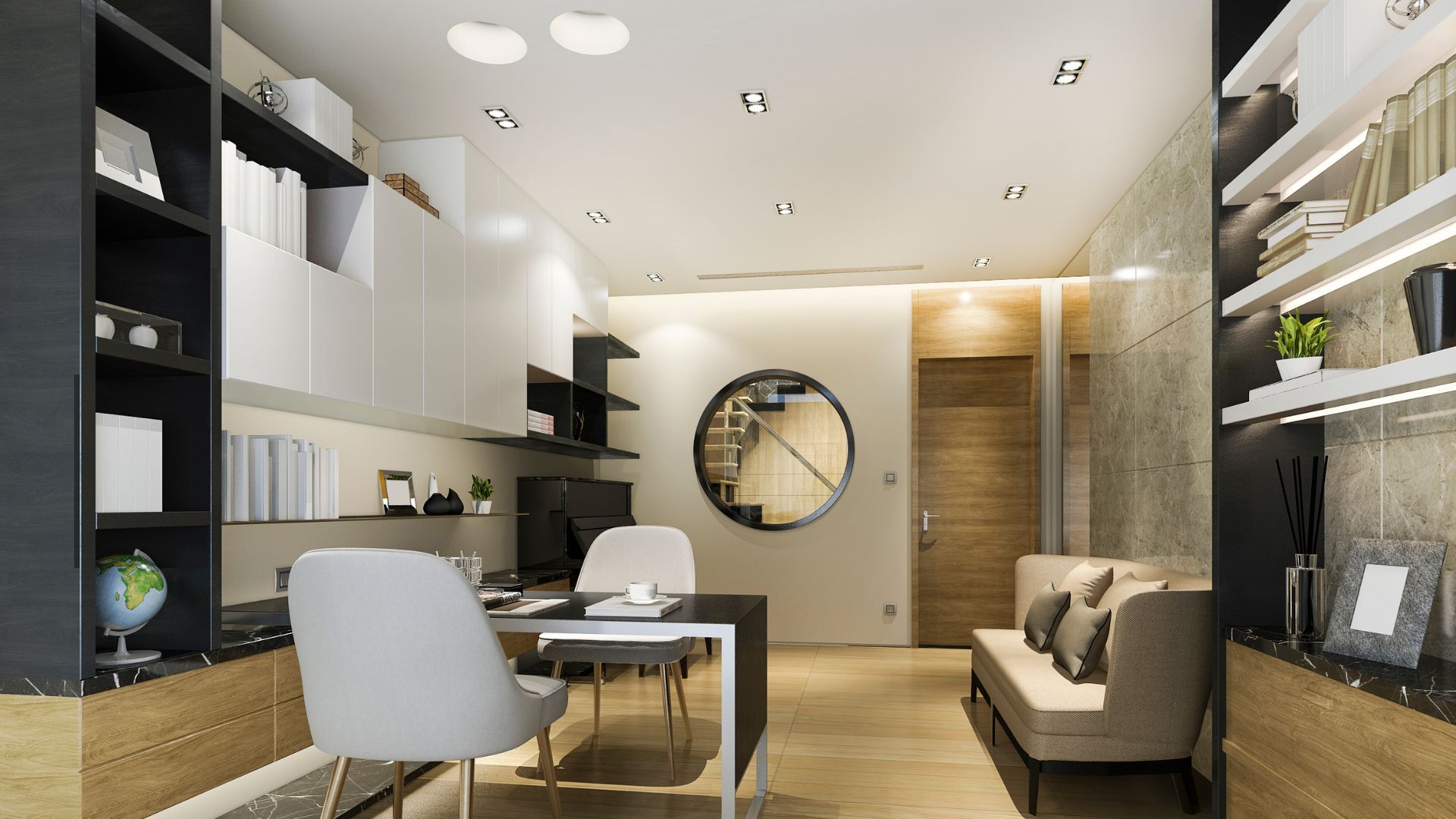
Upgrading to energy-efficient commercial HVAC solutions is a strategic investment that delivers both immediate and long-term benefits. Aside from a notable reduction in energy bills, energy-efficient systems increase workplace comfort and productivity, contributing to overall business growth. They also enhance indoor air quality, which has been linked to improved employee health and reduced absenteeism—a critical advantage in today’s competitive market.
Calculating Long-Term Cost Reductions From Efficient Rhode Island Commercial HVAC
The transition to energy-efficient systems can result in significant long-term cost reductions. Research by the Lawrence Berkeley National Laboratory (LBNL, 2019) explains that businesses can expect to save 20–30% on heating and cooling costs by upgrading to high-efficiency HVAC systems. These savings, when calculated over the lifespan of the equipment (often 15-20 years), translate into substantial financial benefits. Besides energy savings, modern systems require fewer emergency repairs and reduced downtime, contributing further to cost efficiency. Capturing these savings in a detailed ROI calculation not only supports the decision-making process but also helps in securing financing or rebates offered by state and local government programs.
Improving Workplace Comfort and Productivity With Better HVAC
A modern, efficiently designed HVAC system greatly enhances workplace comfort by maintaining consistent temperatures and optimal humidity levels. Improved comfort levels have a direct correlation with increased productivity and employee satisfaction. For instance, a study published in the Journal of Building Performance (Smith et al., 2020) indicates that better thermal comfort can boost worker productivity by up to 12%. Comfortable environments ensure that employees can maintain focus and reduce the fatigue often associated with fluctuating indoor temperatures. Furthermore, cleaner indoor air arising from advanced filtration systems helps minimize allergens and pathogens, which in turn fosters a healthier work environment.
Reducing Your Business's Carbon Footprint in Rhode Island
In today’s environmentally conscious market, reducing a business’s carbon footprint is of paramount importance. Energy-efficient HVAC systems contribute significantly by lowering greenhouse gas emissions associated with high energy consumption. When commercial properties use less energy for heating and cooling, they not only save on utility bills but also play an active role in combating climate change. This environmentally friendly approach can enhance a company’s public image, making it more competitive in bids and more attractive to eco-conscious customers and investors. Additionally, using renewable energy solutions such as geothermal technology further reduces dependency on fossil fuels, aligning with international efforts to reduce environmental impact.
Enhancing Building Value With Modern Commercial HVAC Systems
Investment in modern HVAC systems boosts the overall value of a commercial property. Prospective buyers and tenants are increasingly focusing on green building certifications and energy-efficient infrastructures. Upgraded systems signify lower operational costs, improved durability, and higher standards of building automation, which collectively contribute to higher property valuations. Moreover, the integration of smart controls and optimized airflow design can lead to improved indoor air quality—a key selling point in commercial real estate markets today.
Meeting Rhode Island Energy Standards With Compliant HVAC Solutions
Rhode Island’s energy standards require commercial businesses to adhere to specific efficiency guidelines aimed at reducing overall energy consumption. Upgrading to energy-efficient HVAC solutions ensures compliance with these regulations, thereby avoiding potential fines and enhancing eligibility for state-sponsored rebates. Energy compliance is not only a legal obligation but also an essential aspect of corporate social responsibility. Applications for utility incentives often list energy-efficient upgrades as a prerequisite for approval, making these investments doubly beneficial.
Key Takeaways:
- Energy-efficient HVAC upgrades yield long-term cost savings through reduced operational expenses.
- Improved workplace comfort boosts productivity and supports employee well-being.
- Lower energy consumption contributes to reduced carbon footprints and enhanced building values.
Implementing Proactive Maintenance for Your Rhode Island Commercial HVAC System to Ensure Savings
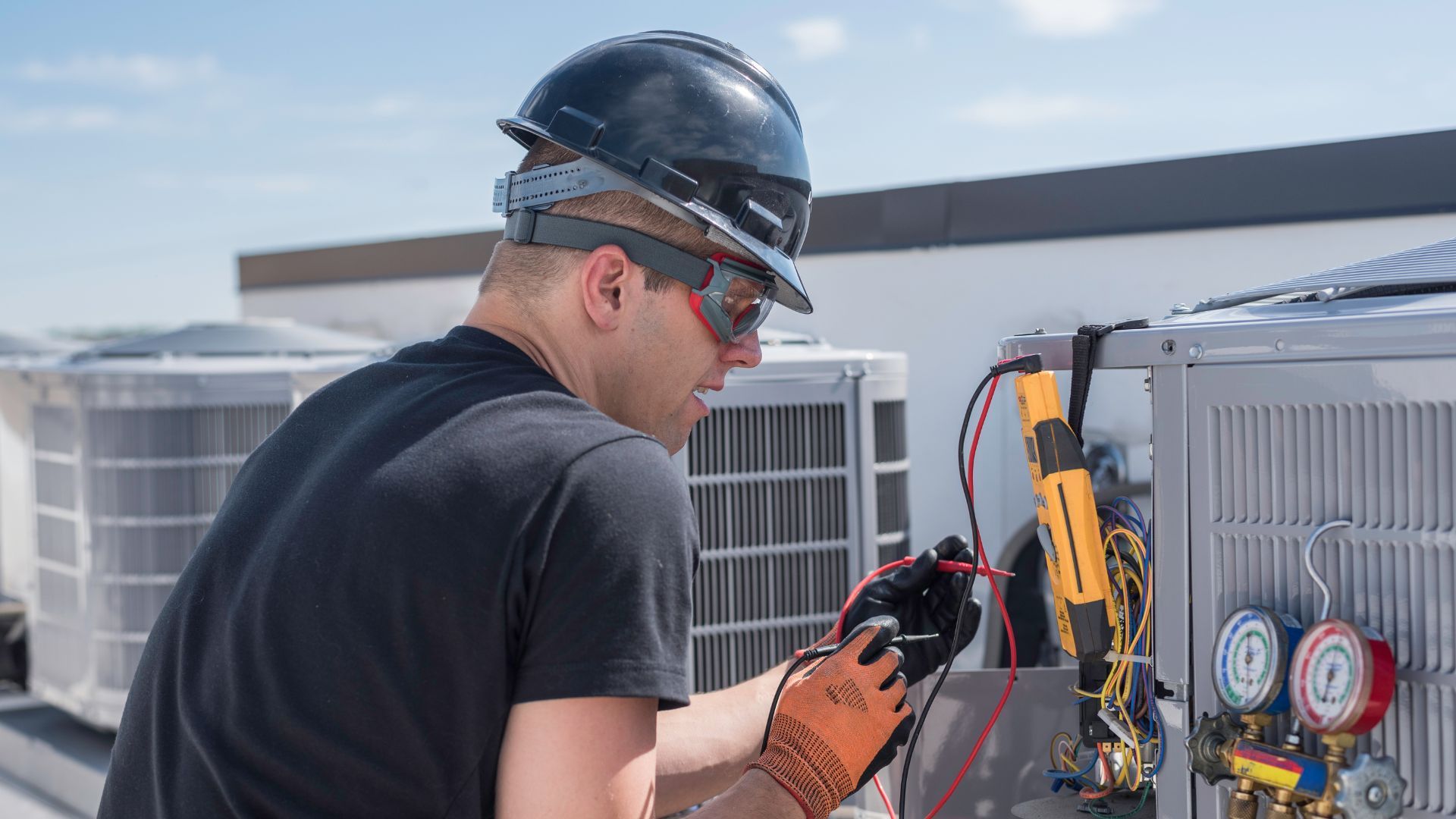
Proactive maintenance is a critical component of ensuring that commercial HVAC systems run efficiently and reliably over their operational lifetime. Regular maintenance not only helps in preventing unforeseen breakdowns but also extends the lifespan of the equipment, ensuring that businesses continue to enjoy the cost-saving benefits of high-efficiency HVAC technologies. For companies in Rhode Island, where seasonal weather extremes can accelerate wear and tear, a comprehensive maintenance plan is essential for mitigating energy waste and reducing emergency service costs.
Developing a Consistent Maintenance Plan for Peak Commercial HVAC Operation
Establishing a consistent maintenance plan involves scheduled inspections, routine cleaning, and proactive repairs. Facility managers should develop a calendar-based maintenance schedule that includes seasonal system checks, filter replacements, and coolant level assessments. Industry best practices suggest performing at least bi-annual maintenance visits to keep systems operating at peak efficiency. Regular maintenance also offers the opportunity to retrofit older systems with newer, more efficient components, ensuring that the HVAC system remains compliant with evolving energy standards while minimizing downtime.
Identifying Common Inefficiencies in Aging Rhode Island HVAC Equipment
Aging HVAC systems are prone to several inefficiencies, including clogged filters, deteriorated ductwork, and outdated control technologies. These factors contribute to increased energy consumption and higher operational costs. When filters are not replaced regularly, airflow is significantly restricted, leading the system to work harder than necessary to maintain desired temperatures. Similarly, outdated thermostats and sensors may not appropriately adjust system output in response to variable indoor conditions, further exacerbating energy inefficiency. Comprehensive diagnostics, using modern analytical tools, can detect these problems early, allowing for targeted repairs that restore efficiency and reduce emergency repair needs.
The Importance of Professional Servicing for Commercial HVAC Solutions in Rhode Island
Engaging professional HVAC technicians for routine servicing ensures that all components are thoroughly inspected and maintained. Professionals have access to advanced tools and diagnostic software that can reveal underlying issues that might not be visible during a routine inspection. Moreover, experienced technicians can provide expert recommendations on system upgrades and modifications that enhance overall performance. Regular professional servicing not only minimizes the risk of unexpected downtime but can also extend the system’s operational life by ensuring all parts are functioning optimally. This expert maintenance is particularly vital during extreme weather events, where system reliability is critical.
Extending the Lifespan of Your Rhode Island Commercial HVAC Investment
Consistent maintenance is directly correlated with increased equipment lifespan. With a proactive approach, businesses may extend the life of their HVAC systems by up to 30%, translating to delayed capital expenditure on replacements. Components such as compressors, fans, and control units tend to show fewer failures when subjected to regular preventive maintenance instead of reactive repairs. Enhanced longevity of these systems contributes to predictable budgeting for energy expenses, while also supporting the integration of newer, complementary technologies like smart building automation systems.
Air Filter Replacement Schedules for Optimal Energy Use
Regular air filter replacement is one of the simplest yet most effective maintenance practices. Filters should typically be replaced every 3 to 6 months, depending on usage patterns and ambient air quality. Clean filters ensure optimal airflow and reduce the energy burden on the HVAC system, enabling it to run more efficiently with lower energy inputs. Consistent filter replacement enhances indoor air quality by trapping dust, allergens, and other contaminants, thereby reducing maintenance-related costs over time.
Key Takeaways:
- A consistent maintenance plan includes scheduled inspections and proactive repairs.
- Regular diagnostics help identify inefficiencies in aging equipment.
- Professional servicing, including timely filter replacements, extends system lifespan and enhances energy efficiency.
Financial Incentives and Support for Commercial HVAC Solutions in Rhode Island
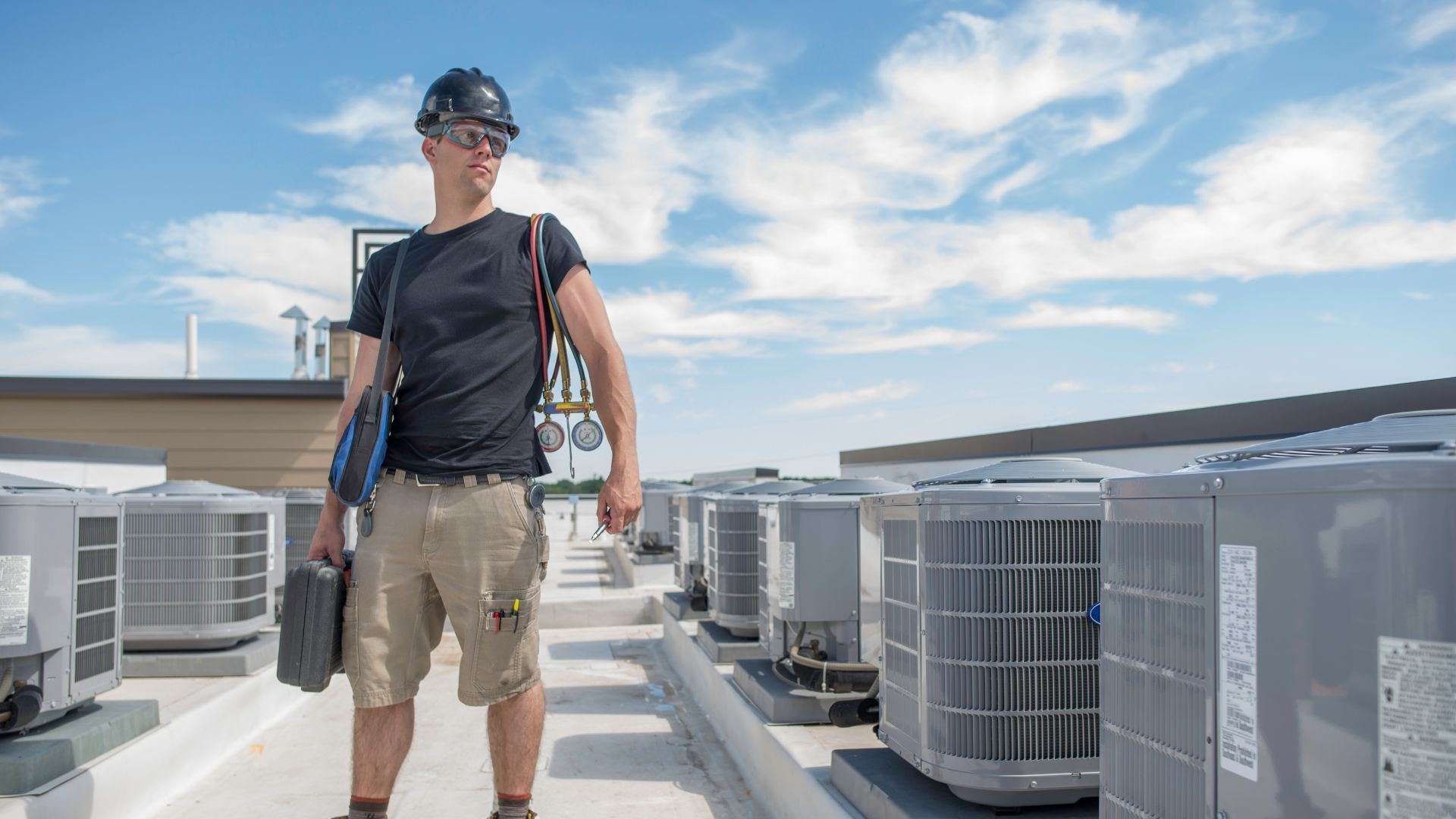
Financial incentives and governmental support programs play a significant role in making the transition to energy-efficient HVAC solutions more financially accessible for Rhode Island businesses. These incentives reduce the upfront costs associated with upgrading legacy systems and can significantly improve the return on investment (ROI) for modern HVAC technologies. Many local and federal programs offer rebates, tax credits, and low-interest financing options, all designed to encourage businesses to adopt energy-efficient practices.
Locating Rhode Island State and Utility Rebate Programs for HVAC Upgrades
Rhode Island state programs and local utility companies frequently offer rebates for upgrading to energy-efficient HVAC systems. These rebates can cover a significant portion of the installation cost and, in some cases, a percentage of the equipment price. For example, communities participating in programs like the Rhode Island Energy Efficiency Program can receive rebates of up to 20% of the project cost. Detailed guidelines and eligibility criteria are typically available on the respective program websites. Utilizing these resources not only reduces capital expenditure but also verifies energy savings for future audits.
Understanding Federal Tax Credits for Energy-Efficient Commercial HVAC
At the federal level, tax credits are available for businesses that invest in energy-efficient commercial HVAC systems. The federal Energy Investment Tax Credit (ITC) offers deductions on improvements that meet specific energy performance criteria. According to the Internal Revenue Service (IRS, 2022), businesses can claim up to 10% of the cost of qualified HVAC projects as a tax credit, provided that the systems meet the required energy efficiency standards. These credits not only lessen the financial burden but also serve as an incentive for taking on projects that contribute toward national energy conservation goals.
How Financing Options Can Make Rhode Island Commercial HVAC Upgrades Accessible
Financing options, such as low-interest loans or performance contracting, further enhance the viability of upgrading HVAC systems. Through these arrangements, businesses can finance their upgrades over several years, repaying the cost out of the operational savings. Many energy service companies (ESCOs) offer contracting arrangements whereby the cost of upgrades is covered upfront, and repayments are made out of a share of the energy savings. This approach reduces the immediate financial strain and offers a guaranteed payback period that aligns with energy savings projections.
Calculating Return on Investment for New Commercial HVAC Solutions
The return on investment (ROI) for modern HVAC solutions can be calculated by comparing energy savings, reduced maintenance costs, and improved system lifespan against the initial capital expenditure. Detailed ROI calculations involve energy consumption data before and after the upgrade, along with projected cost savings over the equipment’s lifetime. For example, a building upgrading to a high-efficiency system might see a reduction in energy consumption of 25%, leading to substantial annual savings that can recoup the initial costs within 3-5 years. Financial modeling software and professional assessments are often used to derive these projections and validate the cost-effectiveness of the investment.
Partnering With Rhode Island Experts to Navigate Incentive Applications
Given the complexities of rebate programs and tax credit applications, businesses are advised to partner with experienced HVAC contractors or energy consultants familiar with Rhode Island’s specific regulations. These experts can help navigate paperwork, ensure compliance with program standards, and maximize the financial incentives available. Their expertise may reduce administrative overhead and fast-track the submission process, ensuring that businesses receive the full benefits offered by local and federal programs. Collaboration with reputable local experts has proven advantageous in many cases, as seen in several case studies where proper guidance led to additional funds and expedited project timelines.
Key Takeaways:
- Rhode Island state and utility rebate programs significantly reduce HVAC upgrade costs.
- Federal tax credits and favorable financing options enhance affordability.
- Partnering with local experts ensures maximum benefits from incentives and streamlined project approval.
Selecting the Right Provider for Commercial HVAC Solutions in Rhode Island
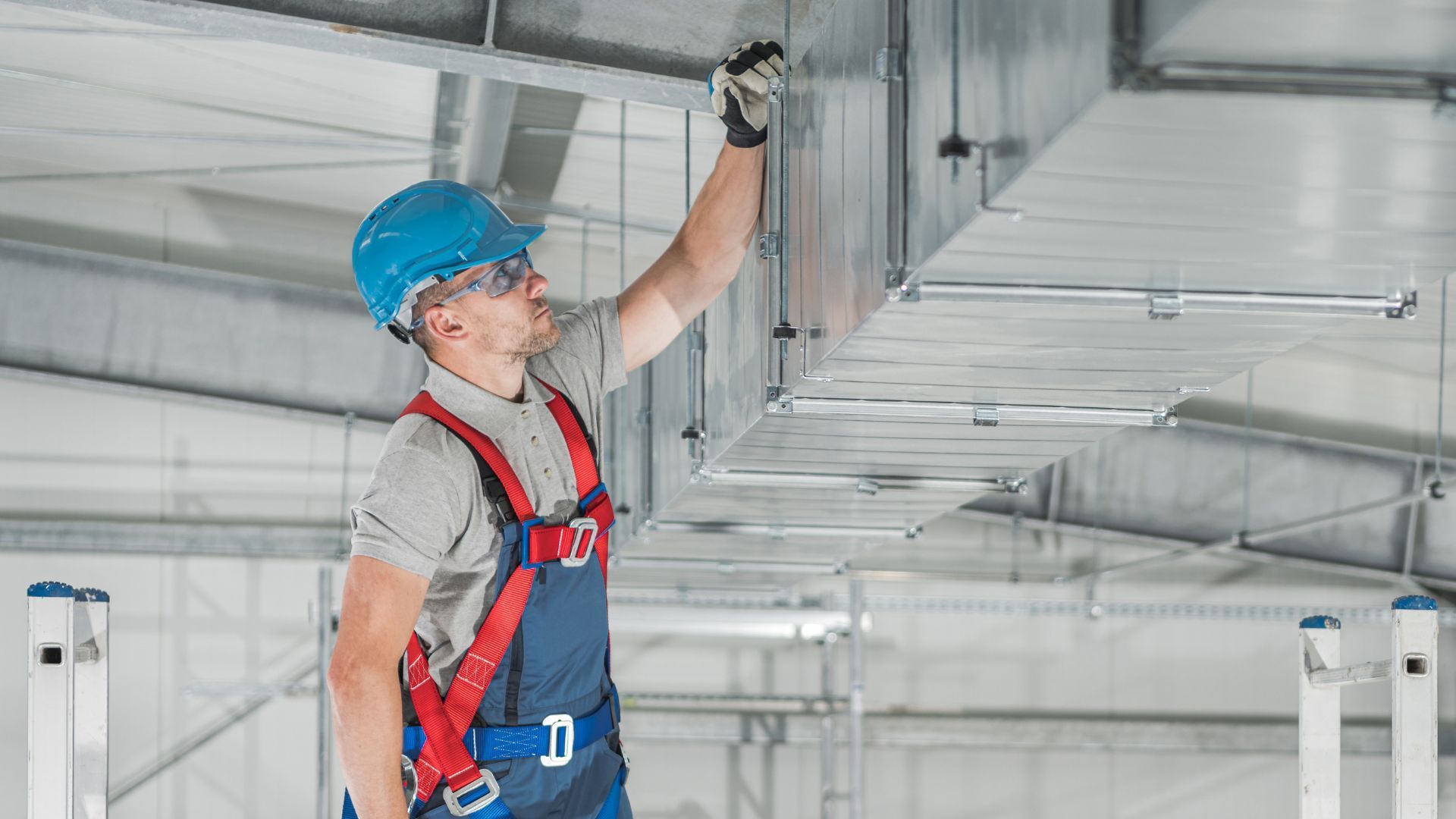
Choosing the right provider for commercial HVAC solutions is vital to achieving optimal performance and energy savings. The provider must offer proven experience with diverse HVAC projects in Rhode Island, possess the necessary licenses and certifications, and provide transparent service agreements with comprehensive warranties. Selecting a reliable contractor ensures that installations, repairs, and routine maintenance tasks are performed according to the highest industry standards, aligning with both energy compliance requirements and operational efficiency goals.
Evaluating Experience With Diverse Rhode Island Commercial HVAC Projects
Evaluating potential providers begins with reviewing their portfolio of past projects. Contractors who have completed a range of commercial HVAC installations—from office buildings and retail complexes to industrial facilities—demonstrate versatility and technical expertise. Documented case studies showcasing reduced energy usage, improved indoor air quality, and cost savings are critical indicators of a provider’s capability. References and customer testimonials also serve as useful metrics, providing insight into their reliability and performance on Rhode Island-specific projects.
Verifying Licenses and Certifications for Rhode Island HVAC Contractors
Ensuring that a contractor is fully licensed and certified is non-negotiable for commercial HVAC projects. Licensing verifies that the contractor meets local and state regulations, while industry certifications demonstrate adherence to the highest technical and safety standards. Certifications from recognized organizations such as North American Technician Excellence (NATE) or HVAC Excellence can be particularly reassuring. These credentials guarantee that the technician is well-versed in modern HVAC system designs, emergency repair services, and energy-efficient installation techniques that are crucial for meeting Rhode Island energy standards.
Reviewing Client Case Studies for Commercial HVAC Solutions in Rhode Island
In-depth reviews of client case studies provide valuable insights into a provider’s track record. By examining previous projects, prospective clients can assess the provider’s ability to deliver consistent energy savings, minimize system downtime during emergencies, and maintain superior indoor air quality. Detailed case studies typically include metrics such as improved system efficiency, reduced maintenance costs, and quantifiable energy savings. Such documented evidence not only builds confidence in the provider’s expertise but also allows businesses to compare different providers based on performance outcomes documented in real-world applications.
Understanding Service Agreements and Warranties for Rhode Island HVAC
A solid service agreement is essential to safeguard the investment in a commercial HVAC system. These agreements should clearly outline maintenance schedules, emergency service provisions, and terms of warranty. A comprehensive warranty should cover key components such as compressors, fans, and control systems, ensuring that any issues are promptly resolved without incurring excessive costs. Transparent service agreements also detail the provider’s response times under emergency conditions, which is crucial for minimizing disruption and ensuring continuity in operations. Facilities managers must carefully review these documents to fully understand the scope of the support being offered.
Prioritizing Providers Offering Custom Commercial HVAC Solutions
Given the varied needs of commercial establishments in Rhode Island, it is imperative to select providers that offer customizable HVAC solutions. A one-size-fits-all approach is rarely effective in the complex environment of commercial buildings. Providers that take the time to analyze specific building characteristics and operational requirements can deliver tailored solutions that maximize efficiency and system performance. Customization might include integrating smart controls, variable speed drives, or specialized filtration systems to address unique indoor air quality challenges. Providers offering bespoke solutions are typically more proactive in delivering long-term energy and cost savings.
Key Takeaways:
- Assess providers based on their project experience, customer testimonials, and documented case studies.
- Ensure the provider holds necessary licenses and industry certifications.
- Custom solutions and transparent service agreements are critical for maximizing ROI and operational reliability.
Tailoring Commercial HVAC Solutions for Rhode Island's Specific Climate Challenges
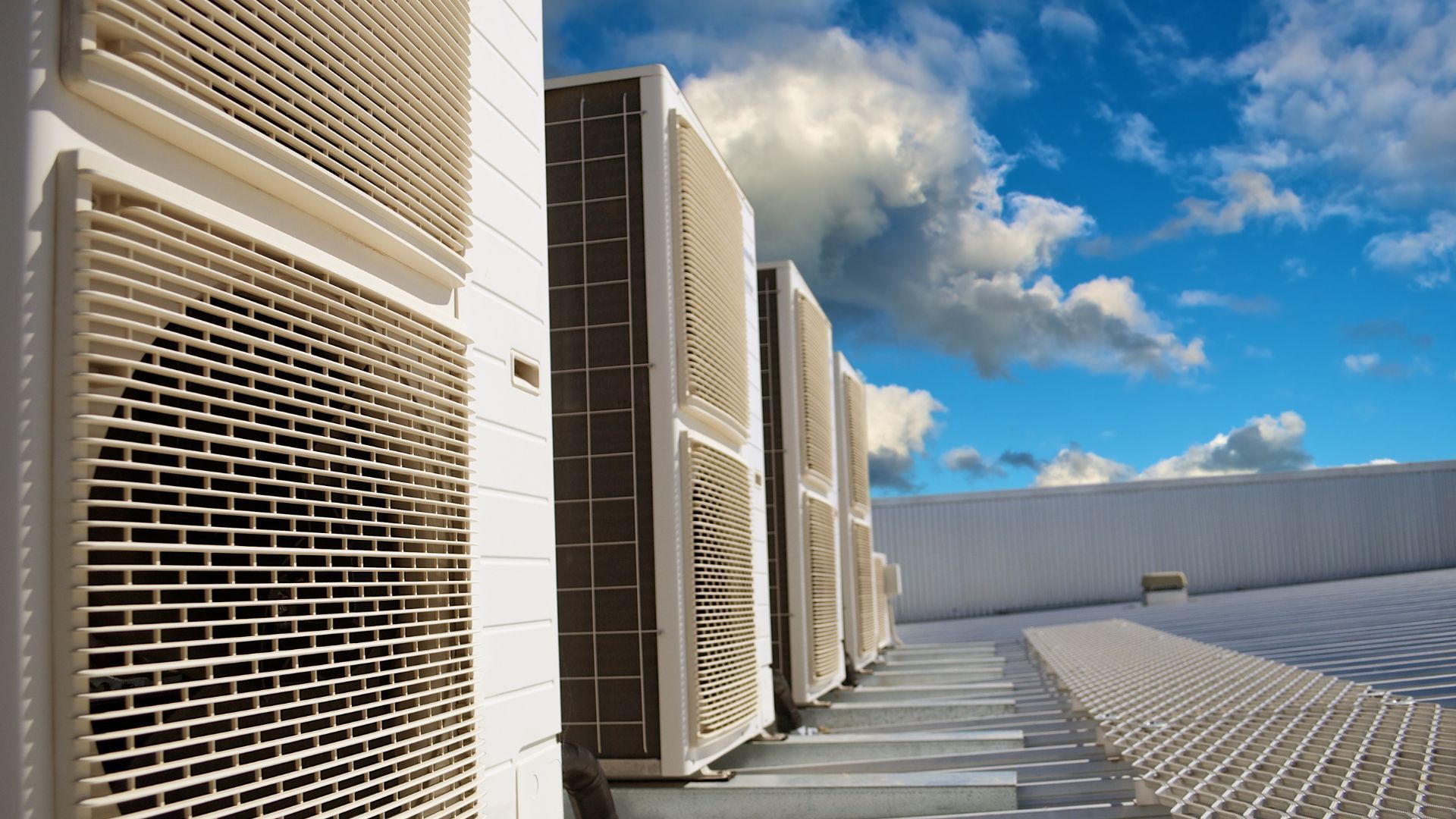
Rhode Island’s unique climate, with its humid summers and cold, snowy winters, requires commercial HVAC solutions tailored to address specific environmental challenges. Customization of HVAC systems to meet climate-specific needs can lead to improved energy efficiency, better indoor air quality, and enhanced overall system performance. Designing systems that account for the state’s extreme weather variations is critical for ensuring consistent comfort and operational reliability throughout the year.
Addressing Humidity Control Effectively With Your Rhode Island Commercial HVAC
Humidity control is a key challenge for buildings in Rhode Island, especially during the humid summer months. High humidity levels can lead to discomfort, promote mold growth, and damage sensitive equipment. Effective HVAC solutions incorporate advanced dehumidification systems and smart controls that continuously monitor indoor humidity levels. Technologies such as energy recovery ventilators (ERVs) capture and recycle energy while simultaneously reducing humidity. These systems not only improve indoor air quality but also contribute to energy savings by reducing the burden on traditional cooling systems. Detailed humidity analysis during the system design phase ensures that the HVAC unit is appropriately sized and configured to handle local humid conditions, resulting in optimal performance and minimal energy waste.
Preparing Your Commercial HVAC System for Rhode Island's Cold Winters
Cold winters in Rhode Island pose unique challenges that require robust heating solutions capable of delivering consistent warmth despite the freezing outdoor conditions. Modern commercial HVAC systems incorporate high-efficiency furnaces, heat pumps, or combined heating systems that rapidly adjust to cold temperature variances. Advanced insulation and smart sensor-driven controls ensure that heat is evenly distributed across the building while reducing the loss of warmth through poorly insulated areas. Preemptive system checks during the fall can identify and address potential issues such as coolant leaks or compromised ductwork, ensuring that the system performs optimally in winter. Utilizing renewable backup solutions, such as geothermal integration, also assists in maintaining heating performance when traditional systems are under strain.
Optimizing Cooling Efficiency During Rhode Island's Summer Months
During the summer, high ambient temperatures and elevated humidity levels require commercial HVAC systems that can effectively reduce indoor temperatures while minimizing energy consumption. Efficient cooling solutions employ variable-speed compressors and scroll compressors designed to match the cooling load dynamically. Moreover, routine maintenance—such as cleaning condenser coils and ensuring proper refrigerant levels—plays a crucial role in maintaining effective cooling performance. Enhanced airflow management through updated duct systems ensures that cooled air is evenly distributed, preventing the formation of hot spots in large commercial spaces. Together, these measures contribute to improved system efficiency, reduced energy expenditure, and a comfortable indoor environment even during peak summer conditions.
Improving Building Ventilation With Strategic Commercial HVAC Solutions in RI
Proper ventilation is essential for maintaining indoor air quality and removing contaminants that can negatively impact both occupant health and system performance. Modern commercial HVAC solutions integrate advanced ventilation strategies such as demand-controlled ventilation (DCV) that adjusts airflow based on real-time occupancy data. This ensures that energy is not wasted on over-ventilation while still providing clean and fresh indoor air. In Rhode Island’s urban environments, where pollutants can accumulate, such strategic ventilation solutions are vital not only for health reasons but also for maintaining the efficiency and longevity of the HVAC system. Additionally, high-efficiency particulate air (HEPA) filters and UV-C light integration can be installed to further enhance indoor air quality in spaces where sensitive operations take place.
Energy Recovery Ventilation Benefits for Rhode Island Businesses
Energy recovery ventilation (ERV) systems play a pivotal role in maintaining indoor comfort while maximizing energy efficiency. ERVs capture exhaust energy and transfer it to incoming fresh air, thereby significantly reducing the load on heating and cooling systems. This technology is particularly effective in Rhode Island’s diverse climate conditions, where indoor environments require constant adjustment due to external weather extremes. With quantifiable benefits, ERVs can reduce a building’s overall energy consumption by up to 20%, according to research published by the International Energy Agency (IEA, 2019). Incorporating ERV into your HVAC strategy not only improves indoor air quality but also results in measurable reductions in energy usage and associated operational costs.
Key Takeaways:
- Addressing humidity and temperature extremes is crucial for Rhode Island commercial buildings.
- Customized HVAC solutions enhance system performance across diverse seasonal challenges.
- Integration of ERV and advanced ventilation systems improves energy efficiency and indoor air quality.
Frequently Asked Questions
How do high-efficiency HVAC systems reduce operational costs in commercial properties?
High-efficiency systems use advanced technologies like VRF, smart controls, and energy recovery ventilation to adjust cooling and heating dynamically. This results in lower energy consumption, reduced maintenance needs, and extended equipment lifespan, significantly reducing overall operational costs.
What incentives are available for commercial HVAC upgrades in Rhode Island?
Rhode Island offers state and utility rebate programs that can cover up to 20% of the project cost, along with federal tax credits under the Energy Investment Tax Credit program. Low-interest financing and performance contracting also help reduce the upfront cost of upgrades.
Why is preventive maintenance important for commercial HVAC systems?
Preventive maintenance ensures that systems operate at peak efficiency by regularly addressing issues like clogged filters and aging components. This proactive approach minimizes emergency repairs, reduces energy waste, and extends the system’s overall lifespan.
What role do smart controls play in modern HVAC systems?
Smart controls use sensors and data analytics to optimize system performance in real time. They adjust temperature settings based on occupancy and environmental conditions, leading to improved energy efficiency and consistent indoor comfort, even during emergency conditions.
How can commercial HVAC systems improve indoor air quality?
Modern systems incorporate advanced filtration, energy recovery ventilation, and smart airflow management to remove contaminants and maintain optimal humidity levels. This results in better air quality for occupants, enhancing overall comfort and reducing health risks.
Final Thoughts
Commercial HVAC solutions in Rhode Island offer powerful opportunities for energy savings, enhanced indoor air quality, and improved operational efficiency. By integrating modern technologies such as VRF, geothermal systems, and smart controls with proactive maintenance strategies, businesses can achieve both financial and environmental benefits. Leveraging available financial incentives and partnering with experienced providers ensures that these investments deliver long-term value. As energy efficiency standards continue to evolve, now is the ideal time for Rhode Island businesses to upgrade their HVAC systems and secure a sustainable future.
